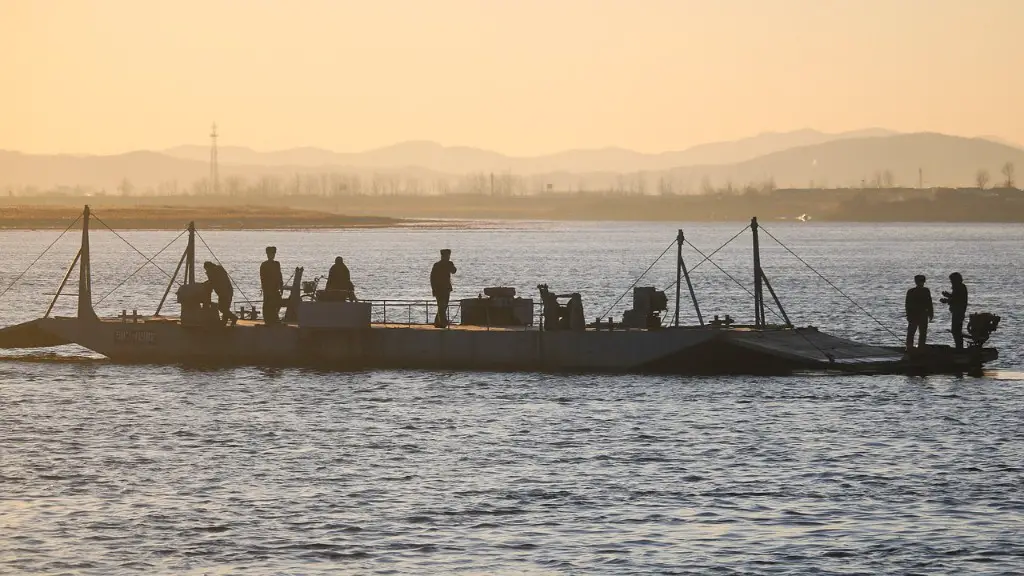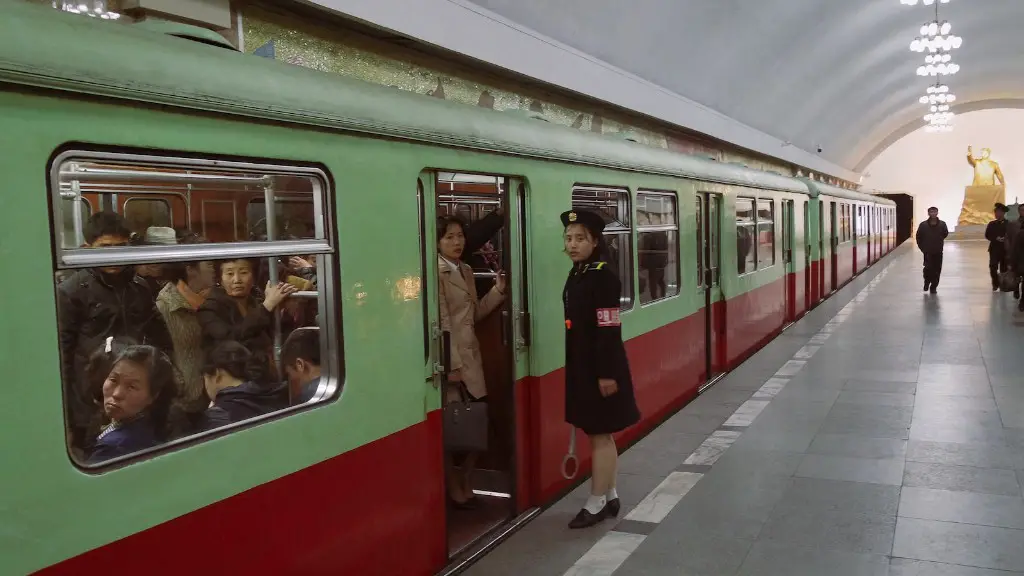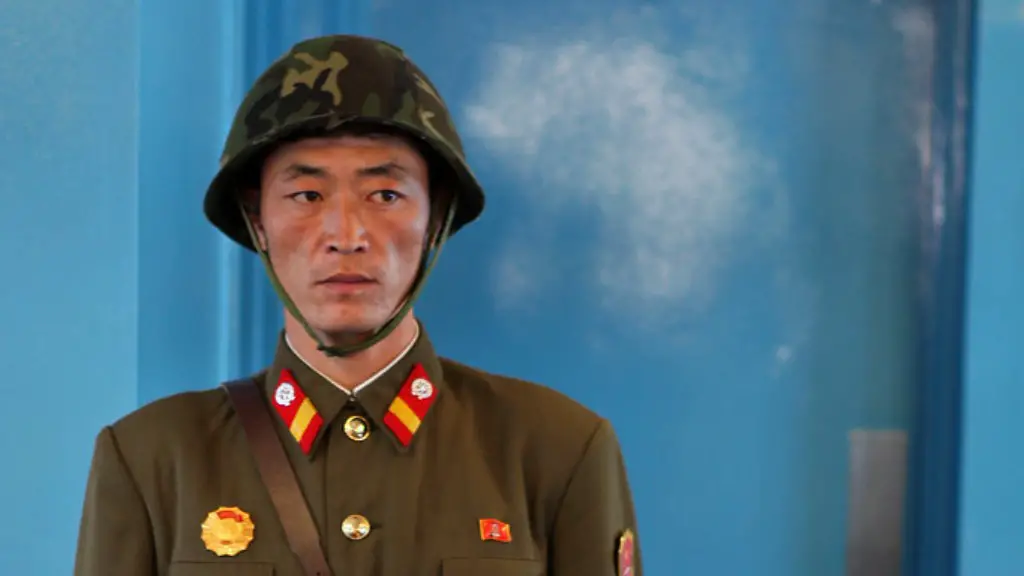Introduction
To truly understand the history of North Korea, it is important not to forget the role of dictatorship in the country’s development. Dictatorship in North Korea has been an integral part of the country’s history for decades, and its origins can be traced back to its establishment after World War Two. It is evident that dictatorship has been an ever-present feature of North Korean politics, with the current leader Kim Jong-Un even inheriting his position from his father and grandfather. Although Kim’s rule is one of the most well-known oppressive dictatorships in the world, understanding when dictatorship first began in North Korea is critical to gaining a fuller picture of the country’s prolonged struggle against authoritarianism.
The Foundations of Dictatorship
The foundations of dictatorship in North Korea can be traced back to the early 1950s when the country was established following the Soviet occupation in 1945. Kim Il-sung, the founder of North Korea and the grandfather of the current leader, assumed control of the country in 1948, establishing it as a communist state.
Furthermore, Kim Il-sung laid the groundwork for the country’s single-party rule, which was institutionalized in 1953. North Korea adopted a new constitution in 1972 as part of Kim Il-sung’s “Juche” ideology, and it was stipulated in the updated constitution that the Korean Workers’ Party (KWP) was the only legitimate political force in the country. This laid the foundations for North Korea to become a dictatorship, as the KWP was able to maintain the control of all areas of the North Korean state, economy, and society.
A System of Fear
In the years that followed, Kim Il-sung implemented a system of fear in the country. He used physical and psychological repression, such as imprisonment or even execution, to instill fear in the population, and this helped him to maintain his grip on power. During his reign, Kim Il-sung also tightened the grip of the state on the North Korean population, from limiting freedom of speech and expression to controlling access to media. This ultimately resulted in the establishment of a totalitarian state under Kim Il-sung in which every aspect of the lives of citizens is controlled, and even their thoughts and ideas are monitored and regulated.
Enforcing a Cult of Personality
Through his years in power, Kim Il-sung enforced the cult of personality surrounding his rule. He surrounded himself with symbols of his power, such as statues and posters, and it was commonplace for citizens to participate in regular rallies in praise of him and his ideology. Kim also imposed a tight control on information and resources, with access to foreign media and books restricted, as well as free and open access to education. This all acted to further limit the freedoms of citizens, as well as create a society in which Kim Il-sung had total authority.
Cementing the Dictatorship
Kim Il-sung also established a system of surveillance and censorship, as well as a strict “one-party system”. People were expected to inform on each other, even in their own families, for any activity that deviated from the norms of the state. This system was used to monitor and control the population, ensuring that those who dared to question or challenge the leadership were quickly dealt with.
In addition, Kim Il-sung cemented his rule by creating a vast cult of personality and engaging in frequent public appearances. This further increased his power and control, as the cult of personality held people in fear and admiration of his rule, while his public appearances helped to create a sense of unity among citizens and boost public support for his leadership.
The Kim Jong-Un Era
Kim Jong-un assumed control of North Korea in 2011, after the death of his father Kim Jong-Il. Under his rule, the country has further entrenched itself in a state of dictatorship, with Kim Jong-un continuing his father’s legacy of oppressive rule and heavy censorship. Kim Jong-un has reaffirmed the authority of the KWP and continued to repress any possible opposition or criticism of the state, while also intensifying control over information and resources.
Kim Jong-un has also maintained a cult of personality, with public rallies and frequent public appearances part of his rule, as well as an emphasis on the importance of the Kim family to North Korea’s “revolutionary” heritage as propaganda.
Economic Maneuvers
To further ensure his rule in North Korea, Kim Jong-un has also focused on economic maneuvers. He has overseen the development of the country’s nuclear arsenal and nuclear power industry, as well as a refocusing of the economy from communism to a more capitalist approach. In addition, Kim Jong-un has been able to transform North Korea into a more self-sufficient state, reducing its dependence on other nations.
North Korea has also seen an expansion of trade and diplomatic relations under Kim Jong-un, leading to normalized relationships with a number of countries, such as China and Russia. This has given Kim Jong-un an additional source of legitimacy, while also enabling increased international trade and economic growth in North Korea.
The Legacy of Dictatorship
Dictatorship in North Korea is the result of decades of repression and fear, enforced under the successive leadership of Kim Il-sung and his son Kim Jong-un. Although the country has seen a degree of economic growth in recent years, it is still a dictatorship characterized by extreme levels of control and censorship. Its history of dictatorship points to the grim reality that North Korea remains one of the most oppressive regimes in the world and that its people will continue to suffer until there is meaningful change in the country.
Living Conditions
For the people living in North Korea, the consequences of dictatorship are especially severe. Living conditions in the country remain dire, with food, housing, and medical care being limited even in the best of times. The lack of access to adequate resources and the ever-present fear of the state act as a burden on the lives of citizens, making it even harder for them to survive and lead a normal life in such a repressive environment.
Furthermore, citizens also face an ever-present threat of detention and imprisonment. Even minor offenses could lead to imprisonment, with prisoners facing inhumane treatment, torture and even execution.
Consequences
The consequences of dictatorship in North Korea are also felt beyond its borders. The state’s oppressive tactics have had a chilling effect on the region, with other countries feeling the repercussions of a North Korea that seeks to maintain its hardline policies through force and intimidation.
This authoritarianism also has serious implications for the global community. North Korea’s nuclear arsenal and unfair trade practices, for instance, have furthered its power and authority, creating a dangerous dynamic that risks further conflict in the region. Likewise, its human rights abuses are a major concern for the international community, and a sign that North Korea’s dictatorship is still in full effect.
Conclusion of International Pressure
In order to move towards a brighter future, North Korea must end its oppressive rule and extreme censorship of its citizens. This, however, cannot be achieved without the support of the international community. Nations around the world have a responsibility to apply pressure on North Korea’s leadership in order to make them understand that their own survival depends on their ability to reform.
International organizations are also key in helping to raise awareness of the situation in North Korea, as well as advocating for more sanctions in response to the state’s human rights abuses. Such pressures can act to support North Korean citizens in their fight against oppression and remind the world of the importance of standing up for human rights universally.


